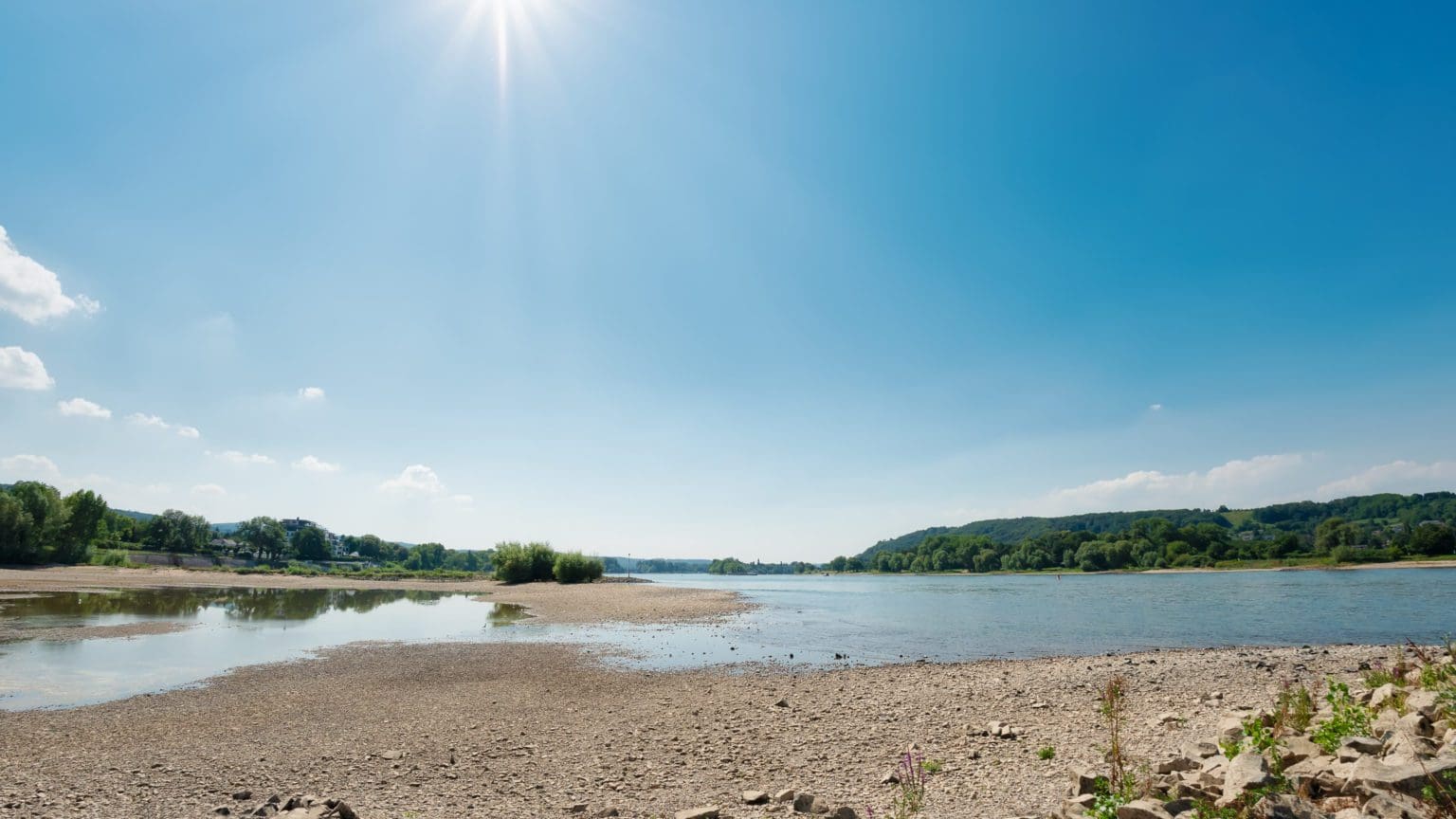Some German businesses are on the verge of having to shut down some production as cargo ships can no longer access the Rhine due to excessive drought. This does not only mean a significant reduction in industrial output for Germany, but also a danger to energy supplies, as most of the country’s coal gets to its destination via the Rhine.
200 Million Tons of Cargo
After the Danube, the Rhine is the second-largest river in Central and Western Europe, flowing 760 kilometres from the Swiss Alps to the North Sea. The Rhine is used to transport the majority of the almost 200 million tons of goods handled on German waterways, including coal, food, chemicals, and automobile parts.
Businesses that are located near the Rhine or that depend on it for the transportation or delivery of goods warn that they have been forced to drastically cut loads and activity levels, and are now in danger of having to shut down some production if cargo ships are unable to enter the river.
This is not the first time the Rhine has dried up drastically. In 2018, extreme droughts forced the suspension of cargo shipments for as long as 6 months.
According to Cologne’s Waterway and Shipping Authority, barges have had to lower their cargo ‘in order to be able to navigate the river’ because of the ‘unusually low water levels’ for this time of year. As a result, prices go up and shipping times for items slow down.
Irregular Performance for Coal Plants
The potential impact of reduced river traffic on energy output is extremely concerning as Germany prepares for a winter of energy rationing due to an 80 per cent reduction in gas flows from Russia.
The biggest distributor of Russian gas in Germany, Uniper, which already needed a multi-billion euro bailout by the government to stop it from going bankrupt, has warned of potential ‘irregular performance’ for the coming month at Staudinger-5, its coal-fired, 510-megawatt power plant east of Frankfurt–on a major tributary of the Rhine–due to interruptions to coal delivery supplies along the river.
Germany’s economy minister Robert Habeck has decided to restart coal-fired power plants, which had been decommissioned, but are now viewed as a temporary solution to help Germany wean itself off Russian gas. As a result, demand for coal has surged.
River Levels Exceedingly Important for Energy Security
German business leaders are now almost as concerned about daily river levels as they are with the amount of gas coming from Russia, as they attempt to avoid a recession in the face of rising energy costs and soaring inflation
Due to the large reduction in cargo capacity, millions of tons of coal are stuck in ports waiting to be delivered to coal plants.
The percentage of gas held at roughly two dozen sites around the nation, some 70.39 per cent of the total last Thursday, is of greater immediate concern.
Similarly to German energy suppliers, the French energy provider EDF also announced this week that it was temporarily restricting output at its nuclear power reactors on the Rhône and Garonne rivers due to heatwaves that made it difficult the use of river water to cool the plants.
Cargo Cut in Half
‘Typically a cargo ship carrying salt from Heilbronn would be carrying 2100 tons on board, but on Monday this had to be reduced to just 900 tons due to the river level,’ Christian Lopez, of Ports and Freight Traffic Cologne, explained to the German media.
Companies must choose between the more expensive options of employing more ships or reloading onto lorries or trains, both of which are now in limited supply, to make up for the decreased capacity. The Black Sea is in special need of ships to transport grain supplies from Ukraine, which is now accessible for the first time in months.
Ships attempting to cross the river have a total height limit of 111 centimetres, with a water level of 103cm, or just 2.14 metres beneath their keel, according to Cologne’s city drainage operations. They cautioned that any ship deeper than that was likely to become stranded and stated that captains are solely responsible for the safe passage of their ships.
The Worst Timing
From an economic standpoint, the Rhine’s draining could not have come at a worse time. Numerous businesses that depend on it have been scrambling to repair supply chains that have been severely disrupted by the pandemic and are desperately trying to restock their inventories.
Germany is facing a multifaceted crisis with compounding factors. Due to the nearly unprecedented heatwaves and droughts, energy demand is up, but their gas supplies are short as a result of the Russian war. To combat this, they decided to return to coal energy as an emergency measure, but suppliers are unable to ship their coal to the plants as a result of the Rhine’s extremely low levels amid the scorching heatwave. Businesses that rely on the river for shipping will have to cease or greatly reduce production. The German government is struggling to adapt, with plans underway to deepen the Rhine and develop methods to better forecast water levels in the future, but these measures take time to realise.








